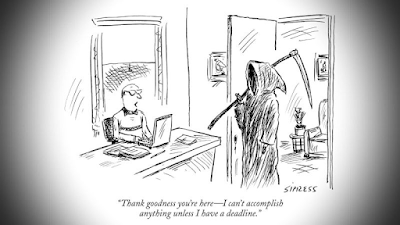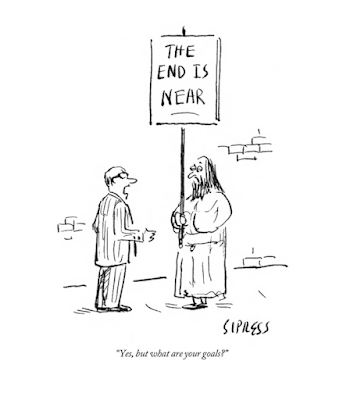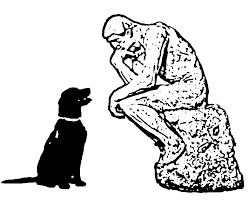PHILOSOPHY 3345 Bioethics
Spring 2025
4:20-5:45 pm, JUB 204
Dr. Phil Oliver, phil.oliver@mtsu.edu - 898-2050, 898-2907 (philosophy dept.), 525-7865.
OFFICE HOURS: TTh 11-12:30 & by appointment, MWF 4-5 by appt. via Zoom. James Union Building 300 (but check the message board on my door on "nice" days and at lunchtime, or maybe call first ). I answer emails mostly during office hours, never on weekends. Best way to secure a quick response: call or come in during office hours.
Bioethics: The Basics (Campbell) ”...the word ‘bioethics’ just means the ethics of life…”
Beyond Bioethics (Obasogie) “Bioethics’ traditional emphasis on individual interests such as doctor-patient relationships, informed consent, and personal autonomy is minimally helpful in confronting the social and political challenges posed by new human biotechnologies…”
The Premonition (Lewis) "The characters you will meet in these pages are as fascinating as they are unexpected. A thirteen-year-old girl’s science project on transmission of an airborne pathogen develops into a very grown-up model of disease control. A local public-health officer uses her worm’s-eye view to see what the CDC misses, and reveals great truths about American society..."
WHAT WE OWE THE FUTURE (MacAskill) "argues for longtermism: that positively influencing the distant future is our time’s key moral priority. It’s not enough to reverse climate change or avert a pandemic. We must ensure that civilization would rebound if it collapsed; counter the end of moral progress; and prepare for a planet where the smartest beings are digital. If we make wise choices now, our grandchildren will thrive, knowing we did everything we could to give them a world full of justice, hope and beauty"...
THE CODE BREAKER: Jennifer Doudna, Gene Editing, and the Future of the Human Race (Isaacson) "we are entering a life-science revolution... Should we use our new evolution-hacking powers to make us less susceptible to viruses? ...Should we allow parents, if they can afford it, to enhance the height or muscles or IQ of their kids? After helping to discover CRISPR, Doudna became a leader in wrestling with these moral issues..."
Each student will also choose and report on additional relevant texts pertaining to pandemics, public health, or some other issue the course raises, thus enabling us to extend our study of the field by “crowd-sourcing” many more of the crucial issues it raises.

 ==
==IMPORTANT DATES Spring 2025
Jan 21 – Classes Begin
Feb 4 -- Select midterm report presentation topic & date
Feb 13 -- Mid-term report presentations begin
Mar 6 – Exam 1
Mar 10-15 – Spring Break – No Classes
Mar 31 – Select final report presentation topic & date
Apr 1 – Final report presentations begin
Apr 29 – Our Last Day of Class. Exam 2
May 2 -- Final report blog post (final draft) due. Post earlier for feedback
May 8 – Last Day of Term
May 10 – Commencement (Days and Times TBD), Official Fall Graduation Date
May 11 – Deadline for Submission of Final Grades, 11:59 p.m.

* Deadlines. Due dates are firm. Extensions are possible in the event of illness or some other unavoidable or extraordinary circumstance, but must first be authorized by me. jpo
JAN
21. Introductions. Post your response to these questions, interpreted any way you like: Who are you? Why are you here? What do you think Philosophy has to do with Bioethics? What ethical/philosophical issues related to the pandemic occur to you? Do you have an easily-summarized personal philosophy? (Maybe something short like Charlie Brown's sister Sally's?--"No!")
23 What is Bioethics? (Basics 1); Premonition Intro/prologue/1
28 Moral Theories (Basics 2); Premonition Premonition 2
30 Perspectives (Basics 3); Premonition 3
FEB
4 Clinical Ethics (Basics 4); Premonition 4 Select midterm report presentation topic & date: indicate your 1st and 2d choices for date and topic in the comments space below midterm report presentations.
6 Research (Basics 5); Premonition 5
11 Justice (Basics 6); Premonition 6; Assign midterm report topics
13 Beyond Bioethics Foreword, Introduction, 1; Premonition 7. Midterm report presentations begin.
18 Beyond 2-3; Premonition 8 Midterm report presentations begin.
20 Beyond 4-6; Premonition 9
25 Beyond 7-8; Premonition 10
27 Beyond 9-12; Premonition 11/epilogue
MAR
4 Beyond 13-15; Codebreaker Intro & Part One-The Origins of Life
6 EXAM 1
SPRING BREAK
18 Beyond 16-17; Codebreaker Part Two-CRISPR
20 Beyond 18-20; Codebreaker Part Three-Gene Editing
25 Beyond 21-22; Codebreaker Parts Four and Five-CRISPR in Action, Public Scientist
27 Beyond 23-27; Codebreaker Part Six-CRISPR Babies. Select final report presentation topic & date
APR
1 Beyond 28-31; Codebreaker Parts Seven, Eight-The Moral Questions, Dispatches from the Front. Final report presentations begin.
3 Beyond 32-34; Codebreaker Part Nine-Coronavirus.
8 Beyond 35-36; Future Part I-The Long View
10 Beyond 37-39; Future Part II-Trajectory Changes
15 Beyond 40-42; Future Part III-Safeguarding Civilisation
17 Beyond 43-50 Future Part IV-Assessing the End of the World
22 Beyond 51-54; Future Part V-Taking Action.
24 Final report presentations conclude
29 Last class. Exam 2 (NOTE: Exam 2 is not a "final exam," it is the exam covering material since Exam 1.)
MAY
2 Final blogposts due (post early draft for constructive feedback)

EXAMS. Two objective-format exams based on daily questions, each worth up to 25 points.
REPORTS. Midterm presentation), final presentation & related blog post (1,000+ words minimum). Worth up to 25 points each. Indicate your topic/date preferences in comments below "Report Presentations" post.
PARTICIPATION. Participation includes attendance, your full and attentive presence in class, and posts, comments (etc.) to our Bioethics site prior to each class. No points formally allotted, but steady participation earns strong consideration for a higher final grade. Hypothetically, for instance: say you earned a total of 88 points (of a possible 100) on the exams and reports. If you did not participate consistently and well, your course grade would be B+. If you did, it would be A. In other words, strong participation earns you EXTRA CREDIT. (So please don't ask, at the end of the semester, how to get it. This is how: participate.)
==
SCORECARDS. Because your professor is a baseball fan, we'll track participation with baseball scorecards adapted to the purpose. Come to class to get on 1st base. Post a pertinent comment or question for discussion prior to class to advance to 2d base. Same to move to 3d. To come home, post a pertinent research discovery, something we wouldn't have known from the day's assigned reading.

==
"Solvitur ambulando"... the art of walking

A NOTE ON THE BLOG POST FORMAT: final report blog posts should include appropriately-bloggish content: not just words, but also images, links, videos where relevant, etc.
==
Watch this space for updated info on the university's and our department's FREE tutoring service... and learn how to study, get help with understanding difficult course material, receive better test grades, or simply improve your grade point average. Tutoring is available in study skills and learning strategies that includes sessions on time management, notetaking, when and where to study, and memory principles. Tutoring is also available in over 200 courses including biology, history, computer information systems, physics, math, psychology, chemistry, economics, recording industry, and many more. The central location for tutoring is the Tutoring Spot, located in Walker Library, but is also conducted at various other campus sites. For available tutoring opportunities, visit http://mtsu.edu/studentsuccess/tutoring.php#on . For questions, call the Tutoring Spot at 615-904-8014.
Dr. Cornelia Wills
Director of Student Success
Middle Tennessee State University
P. O. Box 500
Murfreesboro, TN 37132
Telephone: 615-898-5025
http://mtsu.edu/studentsuccess/index.php
==
Title IX
Students who believe they have been harassed, discriminated against or been the victim of sexual assault, dating violence, domestic violence or stalking should contact a Title IX/Deputy Coordinator at 615-898-2185 or 615-898- 2750 for assistance or review MTSU’s Title IX website for resources. http://www.mtsu.edu/titleix/
==
Writing Center
The Margaret H. Ordoubadian University Writing Center serves all MTSU students, from freshmen to PhD candidates, on writing from any discipline, and in any genre. [website...] We have a brand new digital class visit, a brief introduction to the UWC, which can be embedded in any D2L shell for your students.
Tutoring sessions begin August 24th, and this semester, students will have two choices for online writing support:
Live Chat: students to use their mic and camera and meet tutors in real time to work on a shared document;
Document Drop: students upload their text and assignment sheet, identify specific feedback needs, and receive tutor feedback through email.
We also support writers through course-specific or assignment-specific workshops. The UWC administrative team has worked closely with faculty in diverse programs and departments, such as Biology, Anthropology, and Professional Studies, to create workshops and writing support for students in those courses. Please email Erica Cirillo-McCarthy, Director of the UWC, at erica.cirillo-mccarthy@mtsu.edu if you are interested in talking about ways the UWC can support writers in your class.
 RSS Feed
RSS Feed 





